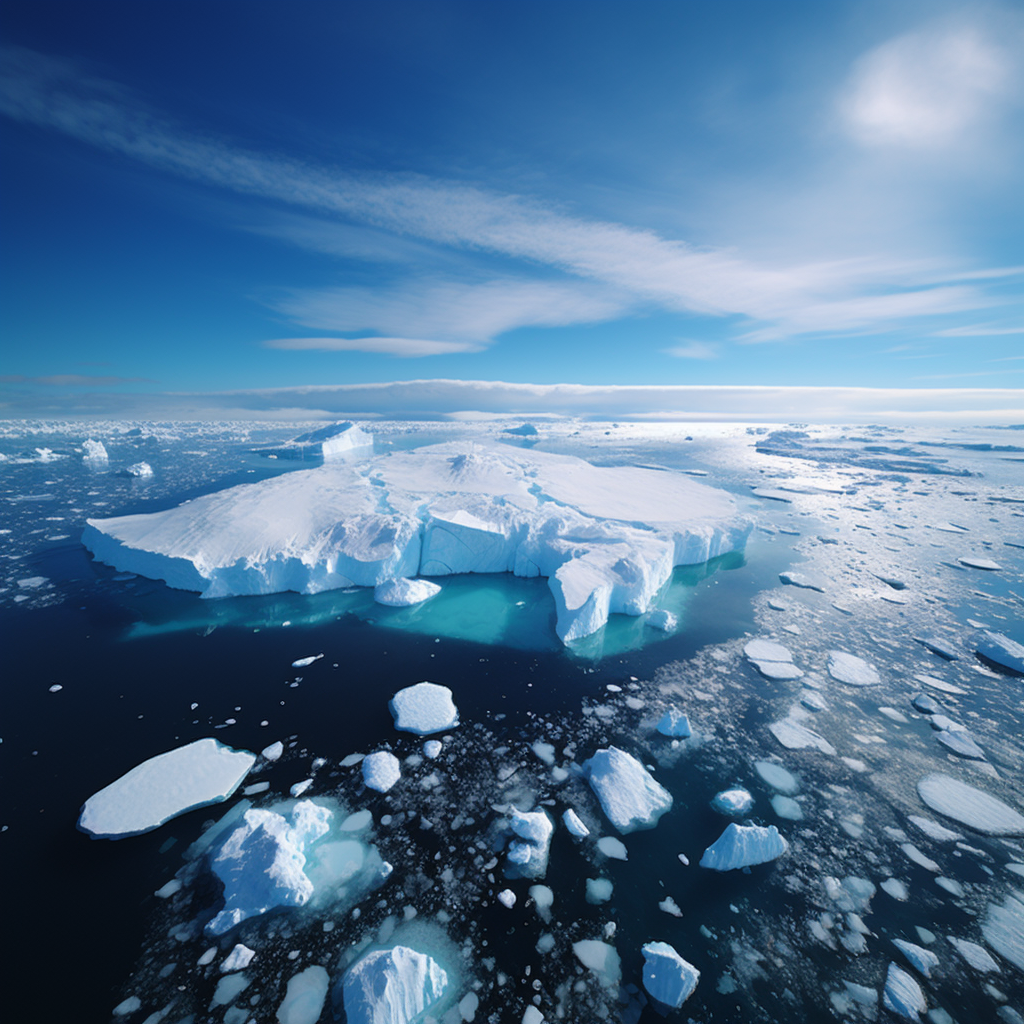September 19, 2023
Melting Ice Sheets – Unearthing Climate’s Past & Future
Book a Demo
In a groundbreaking research led by Dr. Graham Rush, it was discovered that a melting ice sheet 8,000 years ago significantly altered global climate patterns. The study brought to light that changes to the Atlantic Meridional Overturning Circulation (AMOC) led to a major climate change event in the North Atlantic and Northern Europe. This discovery underscores the importance of understanding our past to foresee possible future climate changes.
Geological samples from Scotland’s Ythan Estuary served as evidence for this past climate change event. They indicated sea-level changes were much higher than normal, reaching up to 13 millimeters per year. This was due to two major sources of freshwater draining into the North Atlantic. One of these sources was the melting of the Hudson Bay Ice Saddle, which not only contributed to the sea level rise but also caused a temperature drop of 1.5 to 5 degrees Celsius in the North Atlantic and Europe for about 200 years.
The research has significant implications for our understanding of the current climate change scenario. The melting of the Greenland ice sheet, which is happening at an alarming rate, could have significant climatic consequences, similar to the ones observed 8,000 years ago. This brings to the forefront the urgent need to understand past events to predict future climate changes and take necessary actions.
In a similar vein, another recent study suggests that the melting of the West Antarctic Ice Sheet led to significant climate changes 125,000 years ago. A strong correlation was found between this event and increasing greenhouse gas levels. This information is crucial as it helps scientists understand the potential impact of current ice sheet melting due to global warming.
One of the most dramatic examples of how melting ice sheets can affect the global climate is the Storegga Slide. This was a cascading climate event 8,000 years ago, triggered by a massive chunk of ice sliding into the North Sea. The event caused a tsunami and significantly altered the climate.
These findings from different studies highlight the need for current climate models to consider the potential impact of melting ice sheets. As the climate warms, the effects of melting ice sheets on sea-level rise, ocean circulation, and global climate patterns could be far more significant than previously thought. Therefore, understanding these past events could be key to predicting and mitigating future climate changes.



